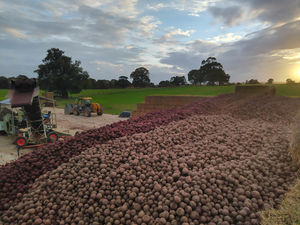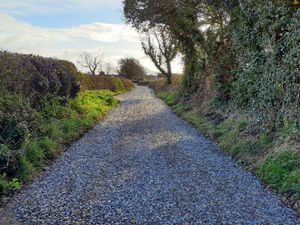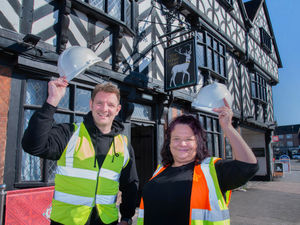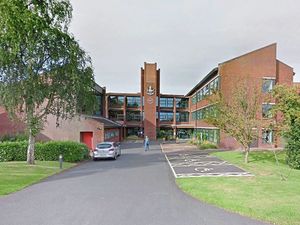Staffordshire farmer left with 500 tonnes of rotting beetroot as EU supply is axed
Around 500 tonnes of beetroot has been left rotting in Staffordshire due to a Brexit-led drop in demand, a farmer has claimed.

Will Woodhall has been left with a huge pile of the organic vegetables, saying he has been unable to sell them after an exporter said they no longer wanted non-EU products.
The farmer, who owns Woodhall Growers in Penkridge, said the sudden loss in demand was a shock, having experienced a boost in demand in the years since the 2016 referendum.
He told the Express & Star: "We've been growing beetroot for years and getting very good at growing it organically, and the year Brexit came, no one really knew what was happening, so we decided to grow a little less as we anticipated it being the year we'd take a kicking financially.
"Brexit came and went and the first loads went through without any paperwork or red tape problems, so we got the confidence to go back to where we were before and we were sending about five lorry loads every three weeks.
"Suddenly, one day, the marketing guy rings up and instead of asking for another haul, he tells me that's it, they don't want any more from us.
"I don't know whether it's the policy of the European company or not, but they've basically said no more non-EU products, so we're halfway through a contract that has been terminated and we're left with all this beetroot."
Mr Woodhall said the cost to him was huge, with an expected loss of up to £90,000 because of the costs of maintaining the land over a two-year period.
He also spoke about the other losses and issues he was facing as a result of the sudden lack of demand.
He said: "I'll be composting a lot of it, so will likely get some value back from this to fuel the next crop, which will be a third less, which is a shame.
"We also have a lot of hand labour who come in to weed the crops from Romania and Bulgaria and we have to pay them a minimum of £500 a week to make it worth coming, so if there's a third less work, they're not going to be here.
"That will impact on other crops and the weeding set-up, which needs 12 people to make it work, so that'll push my weeding costs up again."
Mr Woodhall said he had voted remain in the EU referendum, although he also believed it would have been better to be out in 10 years time, and spoke about the volatility of the market.
Although he was set to lose a large sum of money because of the sudden loss of a contract, Mr Woodhall said he was able to look at other markets as a way of using his land.
He said: "We've got all this land which is ploughed and ready and I was thinking about what I was going to do with it over the next 12 months, so I looked at other markets and I looked at barley for the beer market.
"As Covid measures are relaxing and things are starting to open up, people are spending more money and organic beer sales are on the rise, so I'm looking at that market to see how strong it is going to get."
As his beetroot crops sit in a pile at the farm, Mr Woodhall said he has received a lot of requests from charities, including Incredible Surplus / The Real Junk Food Project Birmingham, who took 200 kilogrammes from the farm.
He said he would help where he could, but said composting the crops would be a boost to the land as well.
He said: "The charity from Birmingham were very happy to take 200 kilos from here, although that's not a lot from 500 tonnes, and I've said to them I will help them, but I also know that, composting-wise, this will be like rocket fuel for the land."





